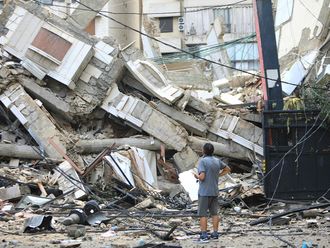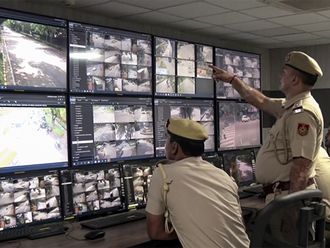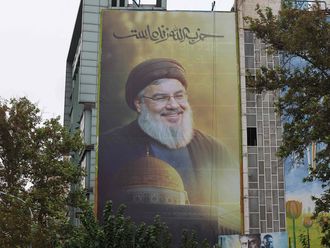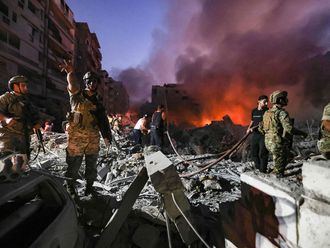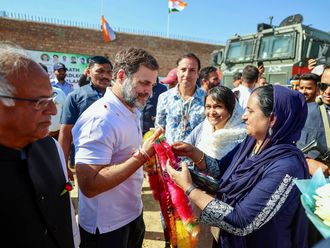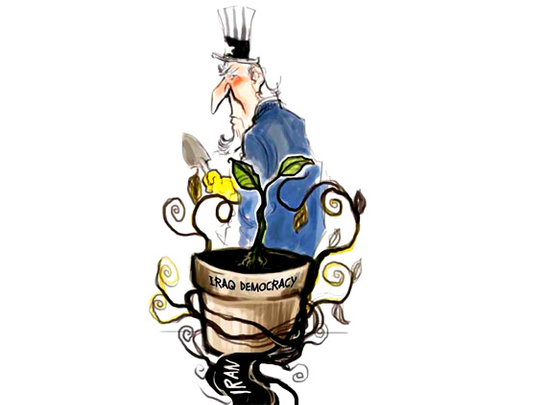
Today marks one month since Iraqis went to the polls to elect a new parliament. The backroom dealing that, with a little luck, will lead to the formation of a new government in Baghdad has been going on for several weeks. Watching this process from afar, it has been especially interesting to see how the two outside powers with the greatest influence in Iraq have handled the weeks since the election.
In this, as in so much else, the United States and Iran have been a study in contrasts. Washington has worked to maintain as low a profile as possible. Aside from praising the vote itself as an example of Iraqi progress the Americans have sought to maintain at least the appearance of neutrality.
Tehran, on the other hand, has acted in ways that seem calculated to remind everyone concerned of the large (and, by most accounts, growing) role it plays in Iraqi affairs.
Iraqi political leaders and their deputies have made a point of trekking to Iran to conduct coalition negotiations. Some of this can be explained by the presence in Iran of Moqtada Al Sadr. The broader message, however, is hard to miss: with the Americans slowly winding down their presence in Iraq, Tehran sees itself as the rising power behind Baghdad's throne and wants to be sure everyone in the region is well aware of that fact.
This, in turn, raises another intriguing question: is it at least possible that the Iranians are overplaying their hand in Iraq, even as the Americans are underplaying theirs?
First, the Iranians. The argument can be made that while politics is about power, the exercise of power often requires subtlety. Hosting a neighbouring country's post-election coalition negotiations may demonstrate power, but it unquestionably lacks subtlety.
Moreover, there is the possibility that this exercise will backfire on both the Iranians and their Iraqi allies. Tehran's position in Iraq is undoubtedly strong, but perhaps not as strong as it once was. In particular, former prime minister Eyad Allawi's electoral success — his ability as a secular Shiite politician to win a significant number of votes among Sunni Arabs — may indicate that the country's electoral map is no longer rigorously sectarian.
Similarly, other electoral observers have remarked on unexpected losses by some tribal leaders, and the especially striking fact that only 62 of the outgoing parliament's 325 members managed to hold on to their seats.
Growing nationalism
Make no mistake, religion, tribe and sect remain powerful motivators in Iraqi politics; but nationalism is clearly a rising force in the country as well. Al Sadr has built his political career around a nationally focused Islamism. Allawi has always been a secular nationalist. His chief rival, incumbent Prime Minister Nouri Al Maliki, despite rising to power as a Shiite Islamist spent much of this campaign trying to sound like an Iraqi nationalist rather than a sectarian Shiite.
If nationalism is, indeed, the coming thing in Iraqi politics then voters are unlikely to look kindly on coalition talks carried out on foreign soil. As heavy-handed as the Americans have often been in Iraq they at least made an effort not to be too obvious about it when picking political favourites.
Ironically, however, getting more visibly involved may be exactly what the Obama administration needs to do at this point.
It is understandable that Washington wants to avoid any appearance of meddling in Iraq's post-election politicking. America does Iraq no favours, however, when it ignores anti-democratic posturing in Baghdad in the name of non-interference.
There may have been some official American condemnation of Al Maliki's rejection of unfavourable voting returns and thinly veiled threats of violence if he does not get to hold on to the premiership. It was hard, however, to find much mention of this in the media.
One of Washington's current clichés is to bemoan the rise of Iranian influence in Iraq. Influence, however, is not a zero-sum game and Washington still has more than a little pull in Baghdad.
For years now one of the many spectres looming over American policy in Iraq has been the fear that America might leave Iraq no more democratic and only slightly less brutal a place than it was when the US arrived in 2003. Though rarely articulated, this idea has haunted much of America's debate over Iraq for at least the last five years.
At this stage, however, one choice ought to be easy. The country has just held an election that, while flawed, has earned a reasonable measure of international credibility.
The Obama administration should make it clear both by word and deed that any Iraqi politician not prepared to respect, and build upon, the election's results can expect no support — military, political or financial — from Washington.
Gordon Robison, a writer and commentator who has lived in and reported on the Middle East for two decades, teaches political science at the University of Vermont.


